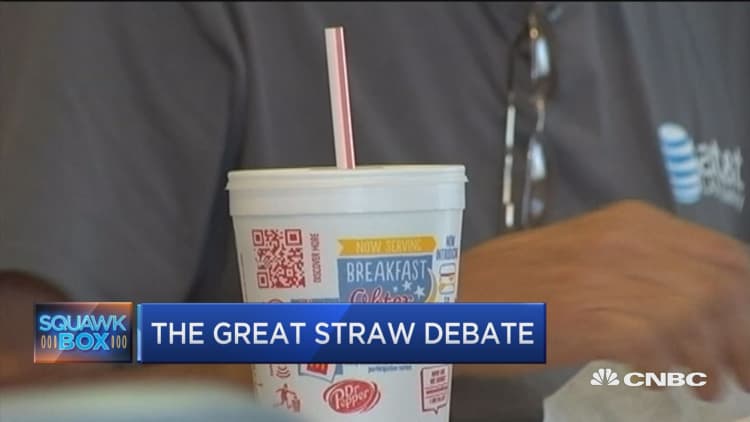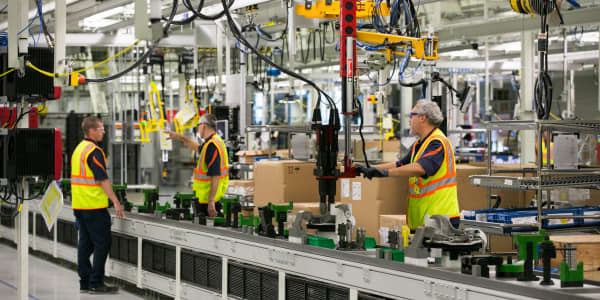
As consumers grow more environmentally conscious and ditch single-use plastics, companies have responded by working to incorporate more recycled materials into their plastic packaging.
Those consumer companies, however, face a "fundamental issue" — a lack of plastic recycling policies in their countries, according to Credit Suisse's head of environmental, social and governance research for Australia.
"The (fast moving consumer goods companies') response is really focusing on recycled content — they've set targets globally, to achieve at least 30 percent recycled content in all their plastic packaging," Phineas Glover told CNBC at the Credit Suisse Asian Investment Conference in Hong Kong on Thursday.
Referring to overall plastic waste, he said: "Some of it we just can't recycle at the moment ... Many nations just haven't developed their own plastic recycling policies."
Adding to that problem is the ban that China put on waste imports globally.
China used to be the world's biggest importer of trash until last year — when it moved to ban imports of 24 types of waste in a bid to clean up the country.
The country started importing waste in the 1980s to fuel a growing manufacturing sector. It grew a whole waste processing and recycling industry, but improper handling of trash and a lack of effective supervision turned the country into a major polluter.
That decision to ban imports of trash has now "basically short-circuited" the system for countries which had been used to exporting their waste, Glover added. This has compounded the waste problem, given the fact that many nations do not have a plastic recycling policy.
By 2025, 194 million tons of pollutants is projected to be in the ocean, Glover said, describing it as a "pretty worrying trend." He predicted that number is only set to grow unless countries do something about the waste problem.
— CNBC's Yen Nee Lee contributed to this report.
WATCH: The great straw debate





